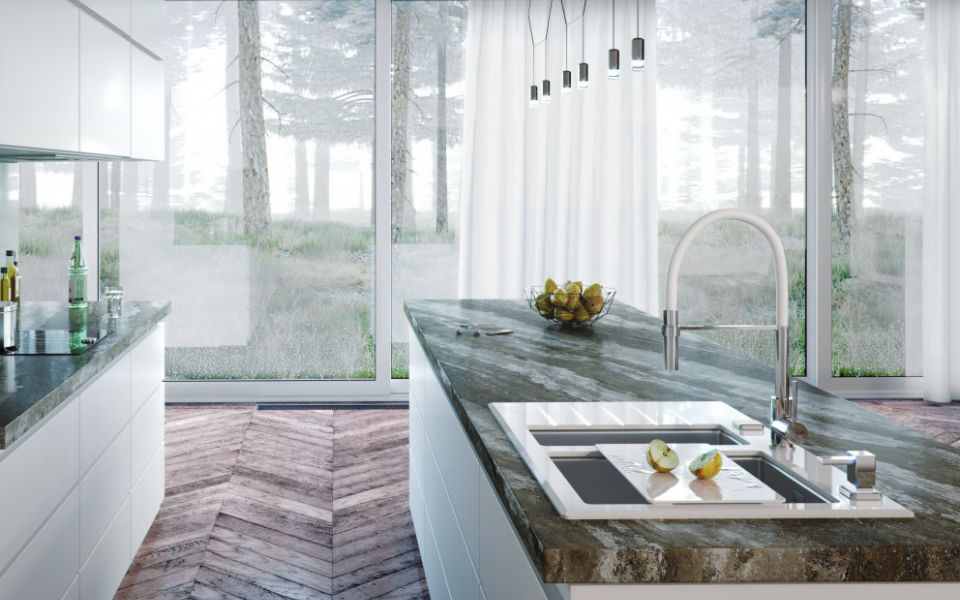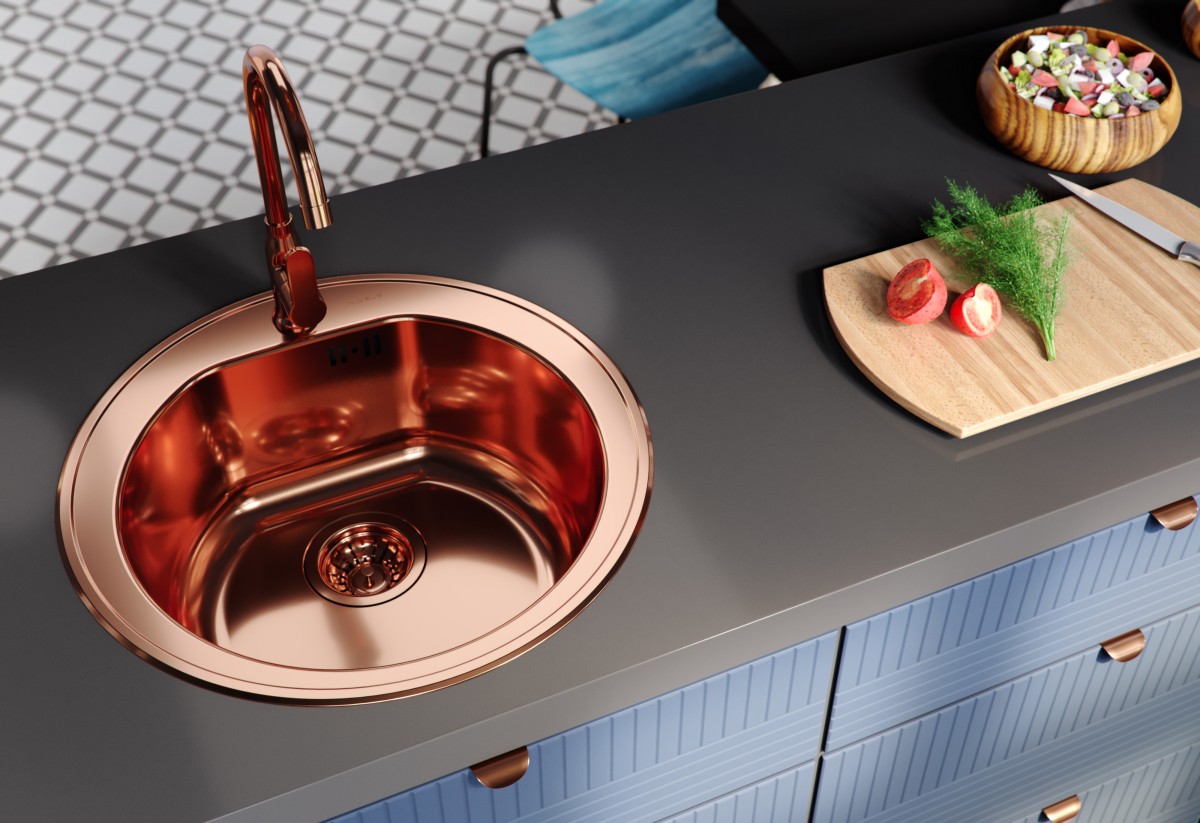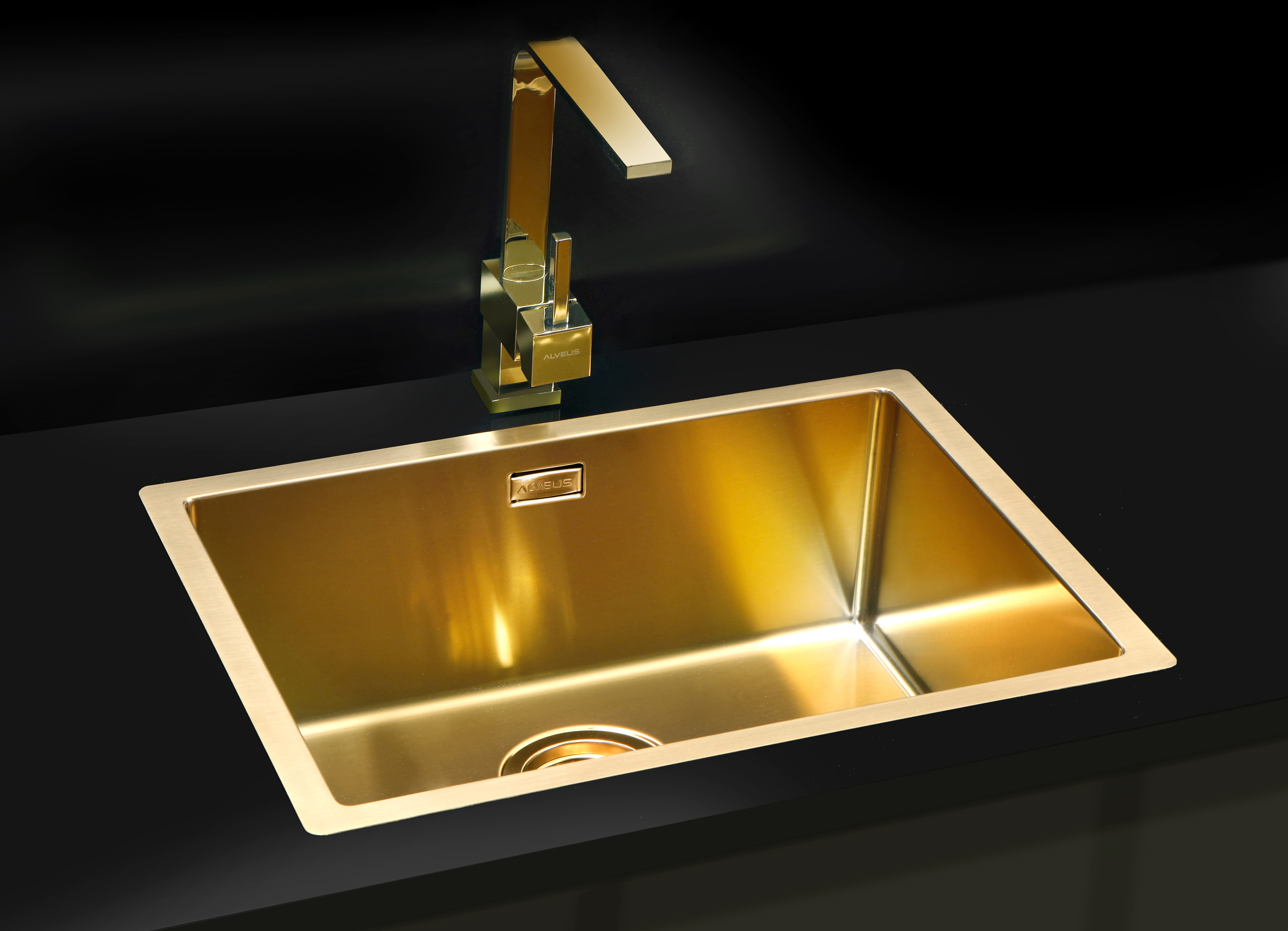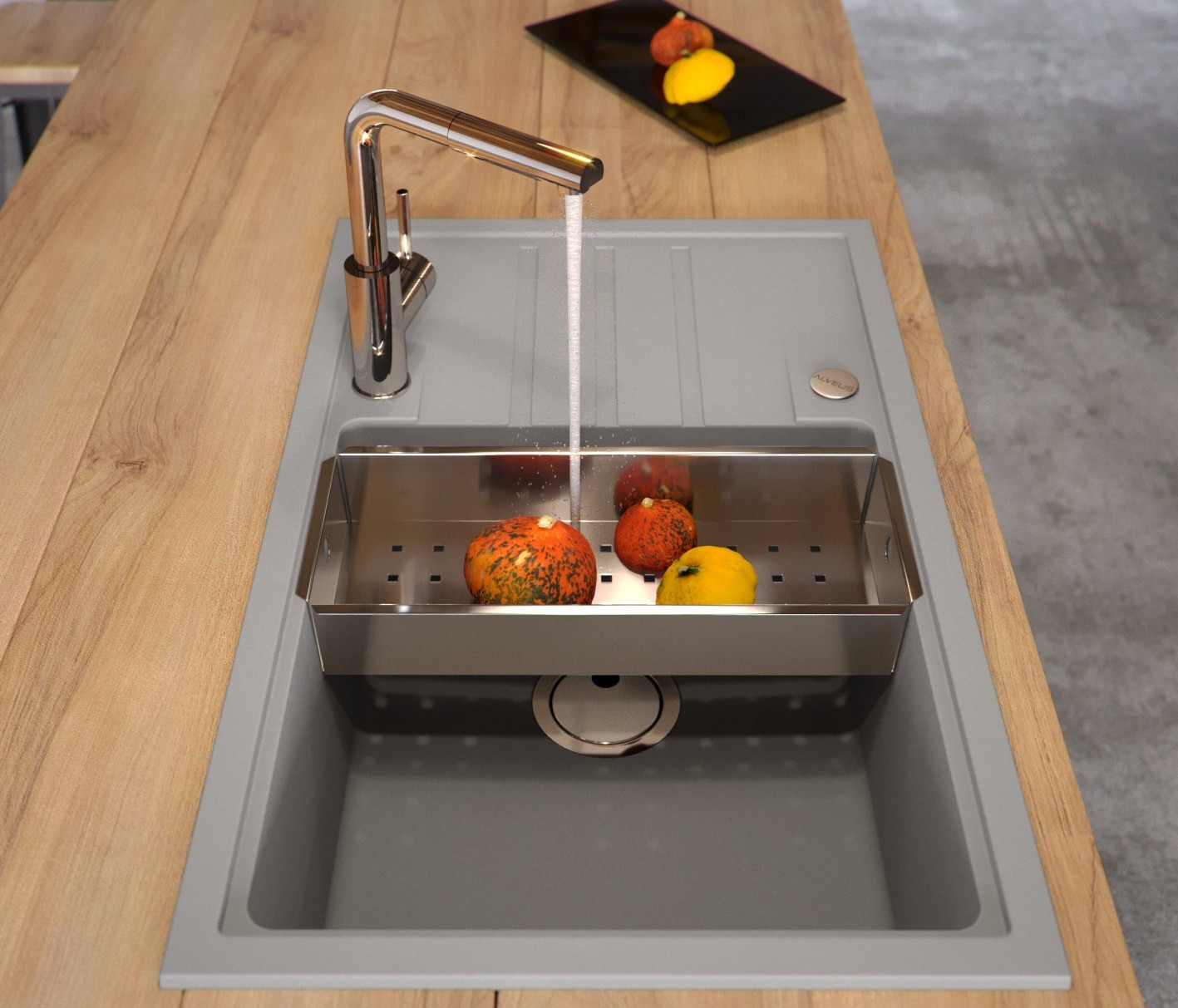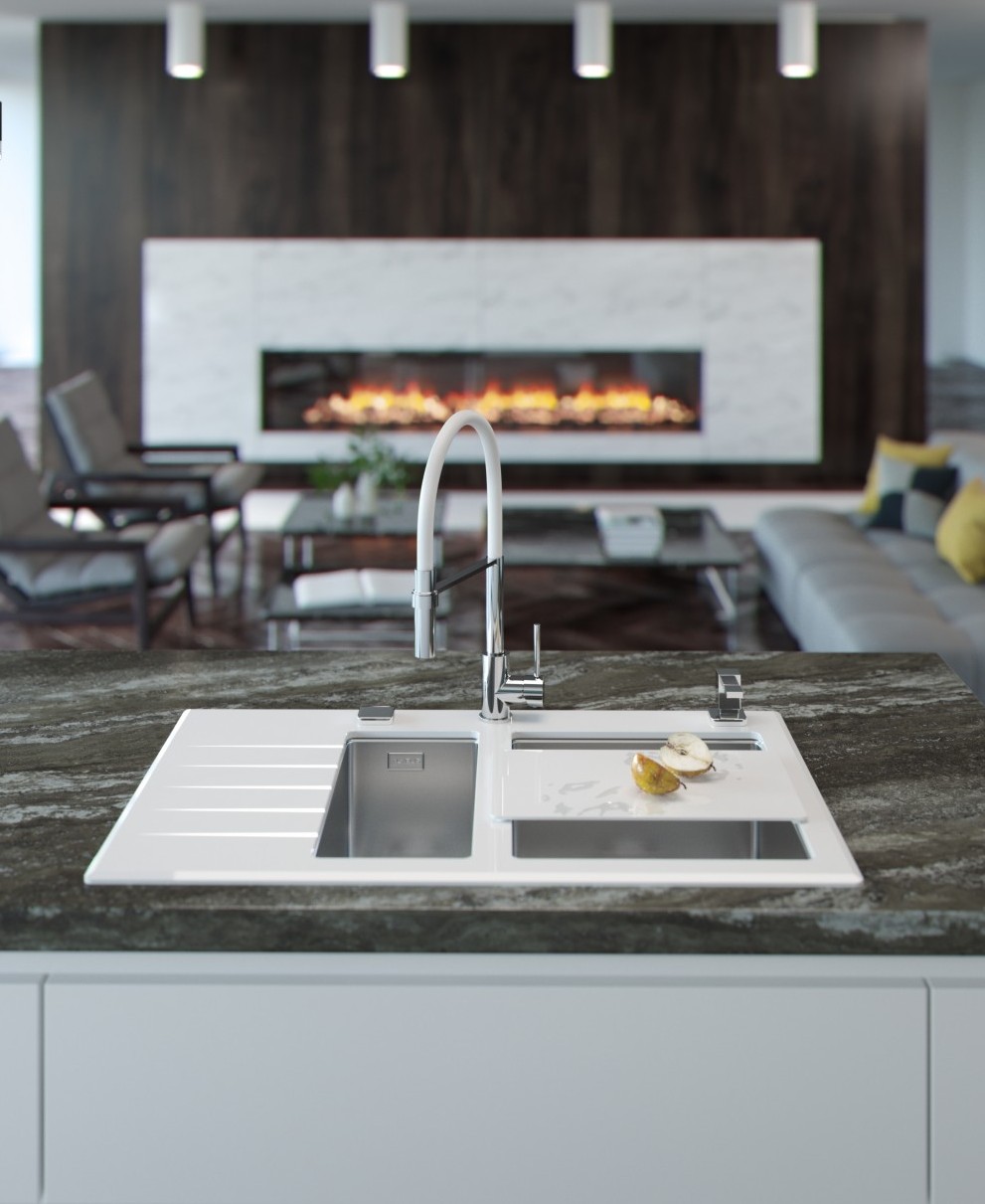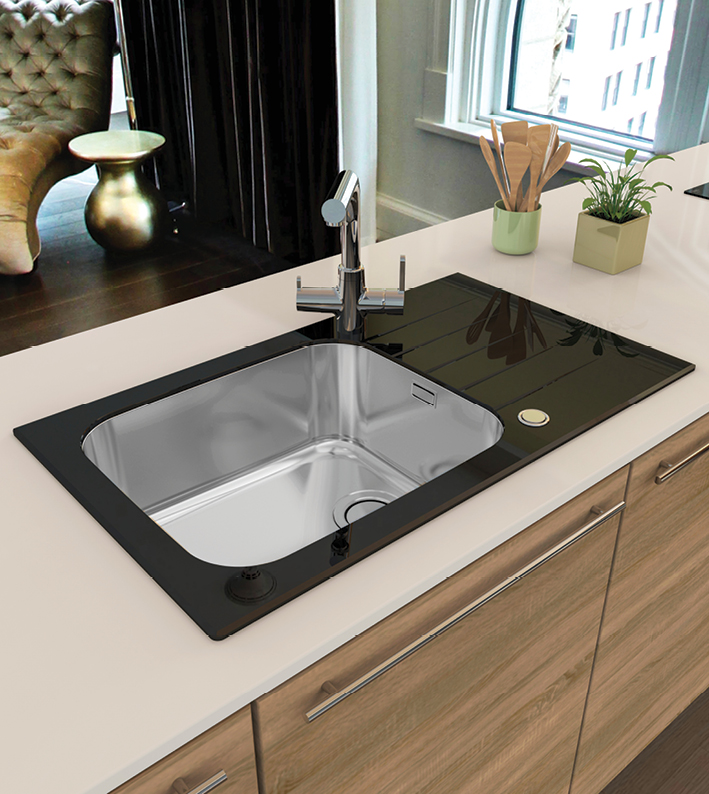Stainless steel sinks
Soft cloths and liquid household cleaners should be used for cleaning. We recommend Alveus cleaning and care agents. Avoid silver cleaner, steel wool pads, bleach, or abrasive detergents. Do not deposit unprotected metal objects onto the stainless steel parts.
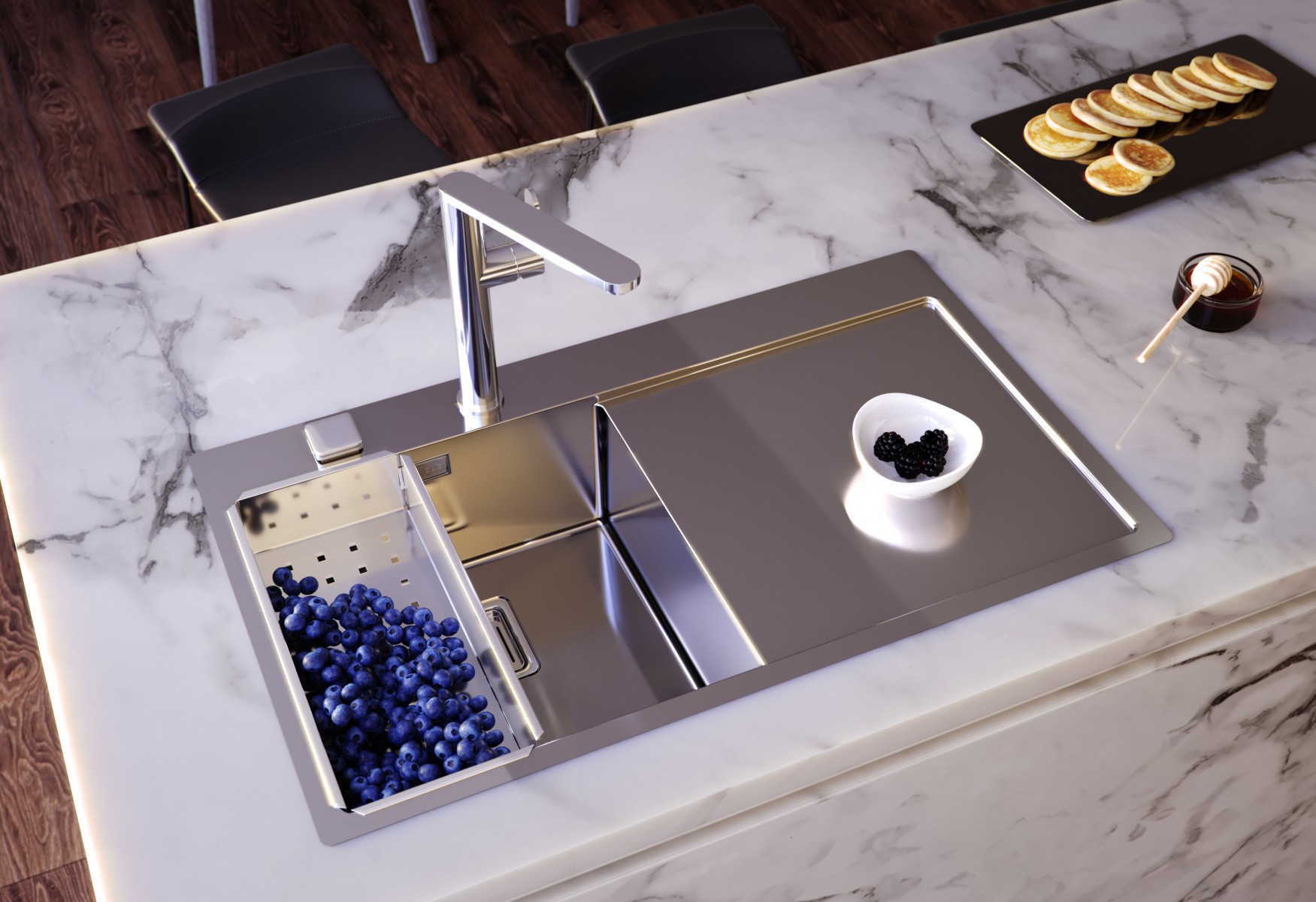
Stylux 50 - Stainless steel kitchen sink
Should stainless steel come into contact with strong acids or leach, flush it immediately with a large amount of water. To avoid staining, do not leave food or corrosive substances (e.g. fruit juice, kitchen salt, vinegar, mustard, mayonnaise, etc.) on stainless steel surfaces for a longer period of time. We recommend that stainless steel products be wiped with a dry soft cloth after use to prevent scale formation.
Stains (fruit juices, coffee, tea, ...) wipe immediately with a liquid detergent and a soft cloth and rinse with clean water.
Other stains (watercolors, ink ...) wipe immediately with a cloth soaked in diluted alcohol and rinse with clean water.
For daily removing lime, you can use the vinegar which you leave on the surface for several minutes and rinse with clean water and then wipe the surface with a clean cloth. Use Alveus ALLSHINE for stubborn limescale.
Cleaning with rough abrasives and coarse sponges is prohibited since it is possible to matt or rub the smooth surface of the kitchen sink.
All claims arising from non-compliance with these instructions are ineligible.
Do not expose the kitchen sink to strong chemicals such as:
Do not place on the drainer or bottom of the kitchen sink hot cookware that you took directly from the oven or from the hob (hot pans, cookware, dishes). When filling the boiling water into the kitchen sink, liquid cold water should also be running. Do not cut directly onto the dishwasher surface. Alveus_Care&maintenance.pdf 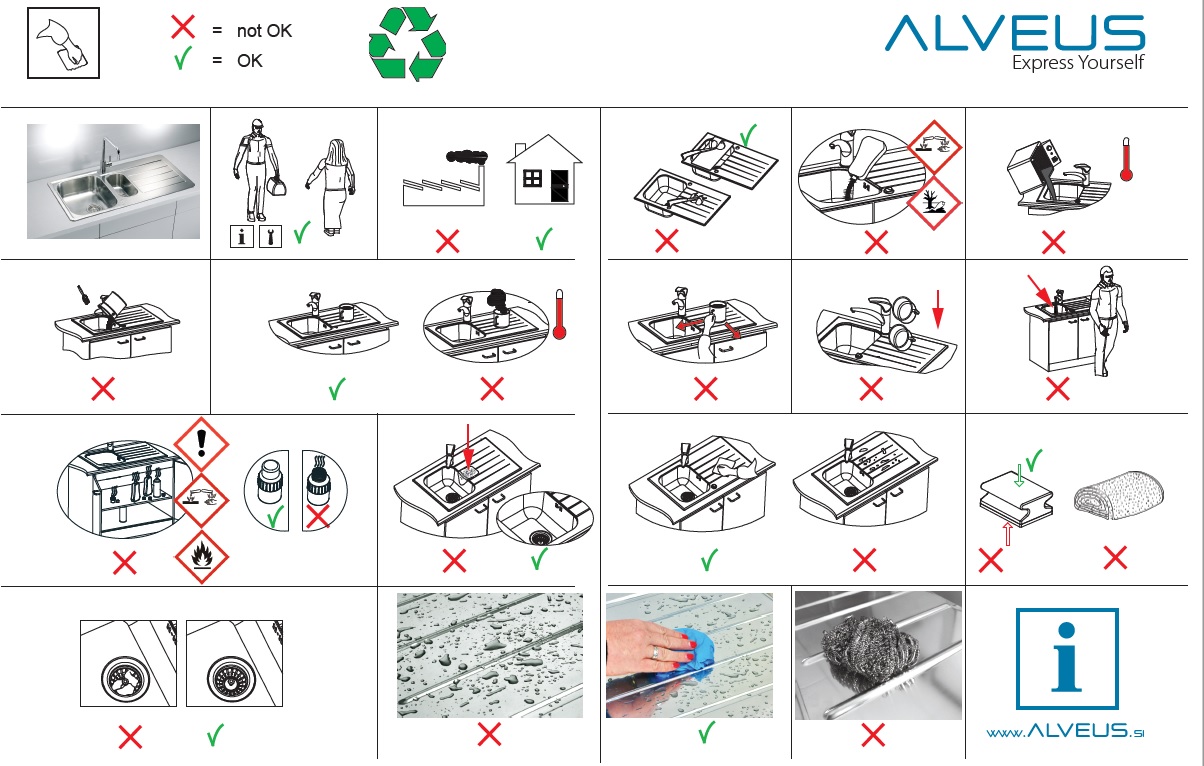 |
Alveus Monarch sinks
1. Use soft sponges or cloths and mild cleaning fluids such as special stainless steel cleaning agents. We strongly advise against cleaning with coarse sponges, steel wool, silver cleaners, or abrasive powders. Avoid objects falling into the kitchen sink or sliding on the sink. To protect the environment, we recommend mechanical unclogging of drains, as chemical drain unclogging agents are often very aggressive and pose a danger to the environment. Follow the instructions for use that came with the cleaning agent. First, test the cleaning agent on a "hidden" area (e.g., on the lower, invisible part of the sink).
2. It is recommended to clean the sink regularly and wipe it dry - after each use or at least once a day. Regularly wiping the sink dry with a soft cloth prevents scale build-up and the appearance of uneven color spots.
3. To give your sink a flawless appearance, we recommend that you avoid using agents containing hydrochloric acid (HCl), sulfuric acid (H2SO4), more than 5% lye solution (NaOH), or bleach (NaOCl)... If the kitchen sink comes into contact with acidic foods (salt, vinegar, alcohol, fruit and fruit juices, tea, lemon, tomato, etc.), rinse the surface immediately, the latest within 10 minutes.
4. Dishes and utensils made of ordinary carbon steel and without surface protection should not be placed directly on or in the sink, as they may leave unwanted particles that may eventually cause rust stains.
Composite sinks
Most stains and dirt can be removed with mild liquid non-abrasive household cleaners or ammoniac-based detergents. More difficult stains can be removed with a fine polishing agent; the remains of limestone can be removed with 9% acetic acid (vinegar). We recommend Alveus cleaning and care agents.
Chlorine detergents (soda hypochlorite) or hydrochloric acids as well as exposure to strong chemicals (varnish removers, oven cleaners, concentrated acids, lye, and similar) can damage the sink finish. Should the contact occur, rinse quickly the surface with water. We recommend the use of appropriate chopping boards.
Tempered Glass
Tempered glass is a type of safety glass processed by controlled thermal treatment to increase its strength compared with normal glass. Tempering puts the outer surfaces into compression and the interior into tension.
Characteristics
Such tension distribution gives the tempered glass the following characteristics:
- increased impact resistance
- increased mechanical strength
- resistance to high temperature (up to 250 C)
- increased resistance to temperature changes
Protection against damage is also an important safety feature of tempered glass. The tempered glass, when broken, crumbles into small granular chunks instead of splintering into jagged shards as ordinary glass does. The granular chunks are less likely to cause injury.
Although tempered glass has higher strength and thermal resistance than ordinary glass, it is not completely scratchresistant and can be damaged by improper use and cleaning. But if you take good care and follow the care instructions for tempered glass, you can prolong its lifetime and great appearance.
You should avoid putting sharp objects onto the glass surface and scrolling them along the surface.
Care tips
To clean tempered glass use liquid soap, non-abrasive glass cleaners, soft cloths. Rub the cleanser gently on the glass. Use another clean cloth to dry the glass. Alternatively, use soap with lukewarm to clean the glass.
Do not forget to completely rinse off the soap from the glass if you use food in direct contact with the glass. Never try to clean tempered glass with abrasive cleaners or abrasive cleaning tools.
Brochure: ALVEUS Tempred Glass - Care&Maintenance
